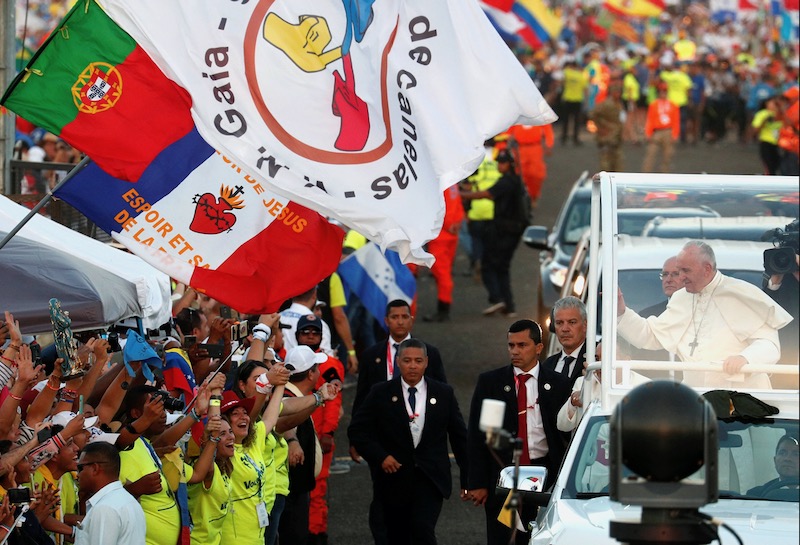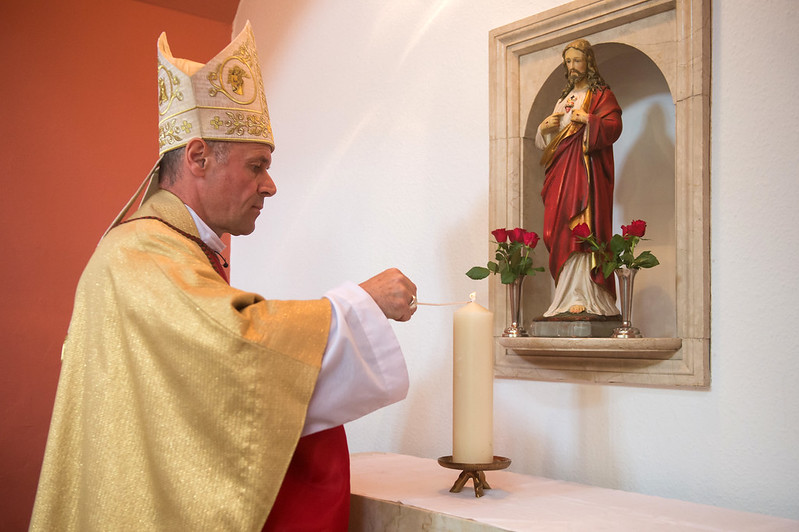Catholic bishops have emphasised that all people with Covid-19 must be treated fairly, given that all are made "equally in the image of God".
Entering the public debate on the allocation of scarce resources for treatment, Bishop John Sherrington, Bishop Paul Mason and Bishop Richard Moth issued a statement on "coronavirus and access to treatment", representing the Bishops' Conference of England and Wales.
Bishop Mason, Bishop of the Forces based at the Military Cathedral of St Michael and St George in Aldershot, where he has been live-streaming Mass on Zoom, told The Tablet that the Catholic Church has been following the debate about allocation of treatment resources closely.
They waited until now to issue the statement because, among other reasons, they did not want to create an unnecessary sense of alarm. He also emphasised that the Church's position was substantially the same as the official position of health services and the Government.
He gave the example of a mother with a daughter with a disability, or the daughter of an elderly parent, needing reassurance that the chances of treatment would not be offset by disability or age. The Church wishes to emphasise that it is reinforcing the principle, already accepted by government and services, that "rationing" treatment along such lines is not acceptable.
Bishop Mason, who is also helping to administer the Farnborough volunteer team for Rushmoor Borough Council, and is a former hospital chaplain at Guy's and St Thomas' in London, said: "We did not wish to cause unnecessary anxiety by raising questions about this earlier. We have been following the debate and now seemed the right moment to make a contribution."
He said the fundamental principles of Catholic moral theology around such issues are well-established, and there is a "huge overlap" between the Church's position and that of government guidance and the law. "In no way can we judge the quality of a person's life by how young, fit or healthy they are. We are all made in God's image," he said.
In their statement, the bishops note that with the escalation of the Coronavirus, "demand on NHS resources is outstripping supply and those responsible for our care and well-being are facing challenging decisions."
People were naturally concerned about the provision of life-support for any who need it. "While we would all agree that the allocation of resources must be done as fairly as possible, the criteria of fairness must be clear and shared by us all. These principles apply both morally and in the law which governs our expectations and rights on health and social care," the bishops say.
"As Catholics our starting point is that we are all made equally in the image of God. Human value is not a measure of our mental or physical capacity, our societal function, our age, our health or of any other qualitative assessment. God made each of us and in so doing gave us all equal dignity and value. This is never lost during sickness or dying."
They continue: "Until the current pandemic, resources have always been allocated according to medical need and benefit to the patient. Today this approach must be complemented by maximising scarce resources for the common good and so prognosis, and the likelihood of benefit becomes the overriding criteria.
"People with underlying health conditions should discuss the sort of treatment they may want with their families so that good communication is possible in a crisis. Each of us may be presented with clinical scenarios which are both unwelcome and distressing, yet doctors are faced with making the least-worst decisions. This approach helps us to focus on the common good."



 Loading ...
Loading ...